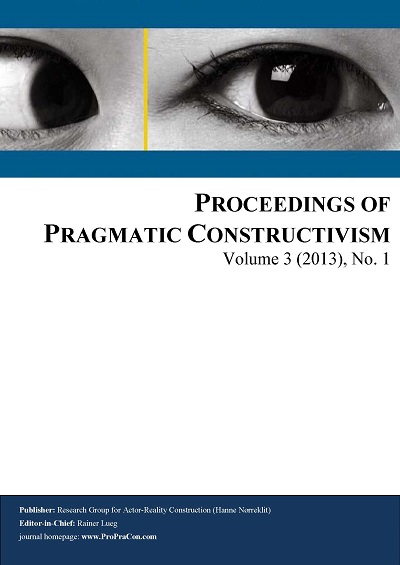NPD accounting: unveiling the potential through pragmatic constructivism
DOI:
https://doi.org/10.7146/propracon.v3i1.16684Keywords:
New Product Development, pragmatic constructivism, accounting informationAbstract
This paper examines the potential value of accounting for the NPD managers and argues that accounting information could play a more versatile role in supporting managerial work in NPD that has been reported. Besides providing facts, accounting may help managers identify their possibilities and communicate their values and valuations, which is to benefit the aims of product development process.
The paper draws from the idea that the roles of accounting vary under different types of uncertainties present in NPD processes. Especially, other roles than that of an “answer machine” are favored. To investigate this, the approach of pragmatic constructivism is employed, i.e., we analyze NPD accounting through facts, possibilities, values and communication related to NPD management. Empirically, the paper is based on 28 interviewees in 10 companies with significant NPD activities to explore the roles of NPD accounting and compare the potential value of accounting to the accounting employment of the examined companies.
From the perspective of pragmatic constructivism, the role of accounting should be clearly related to the analyses and communication of the possibilities and their values (ammunition device, learning device and rationalization device). If this was the case, accounting would be able to serve as an integrative device, which helps to identify (construct) causalities. However, the actual role given to accounting and identified by the managers is that of the provider of the seemingly objective economic facts (answer machine). Besides, the paper reports some best practices, where the managers either have started to actively identify learning opportunities from past projects through accounting information (“a learning theory of truth”) or used accounting information from multiple viewpoints to systematically analyze and value the existing possibilities (“systematic construction of models”).
Pragmatic constructivism provides a solid starting point for identifying the gaps in the management practice that could be fulfilled by accounting employment. Moreover, with the central concepts of the approach, potentially more valuable accounting roles could also be analytically constructed and communicated to the practitioners. Besides addressing the gap between the potential and actual roles of NPD accounting, the paper represents the few attempts to elaborate the accounting roles in systematic decision-making through pragmatic constructivism. Thus, the paper reflects more explicitly also upon seminal work on the roles of accounting in managerial decisions.Downloads
Published
How to Cite
Issue
Section
License
Previous and future use of the work
ProPraCon assumes the non-exclusive rights to publish and store the work of its authors, once they have consented to a publication. Since the rights to publish are non-exclusive, authors are free to re-use their work, e.g., to publish it in other media (as ProPraCon aims at publishing proceedings). Hence, it is explicitly allowed that works submitted to ProPraCon may be published in a somehow similar form in other media. Yet, submitting authors warrant that the work is not an infringement of any existing copyright and will indemnify the publisher against any breach of such warranty.
Permissions
By submitting work to ProPraCon, the authors declare that they have permission to use any content that has not been created by them. Specifically, when using tables, figures or excerpts of more than 400 words, it is expected that the authors…
- …obtain written permission of copyright for the use in print and electronic formats of any of their text, illustrations, graphics, or other material, in their work. This includes any minor adaptations.
- …acknowledge the original source in captions and in the reference list.





